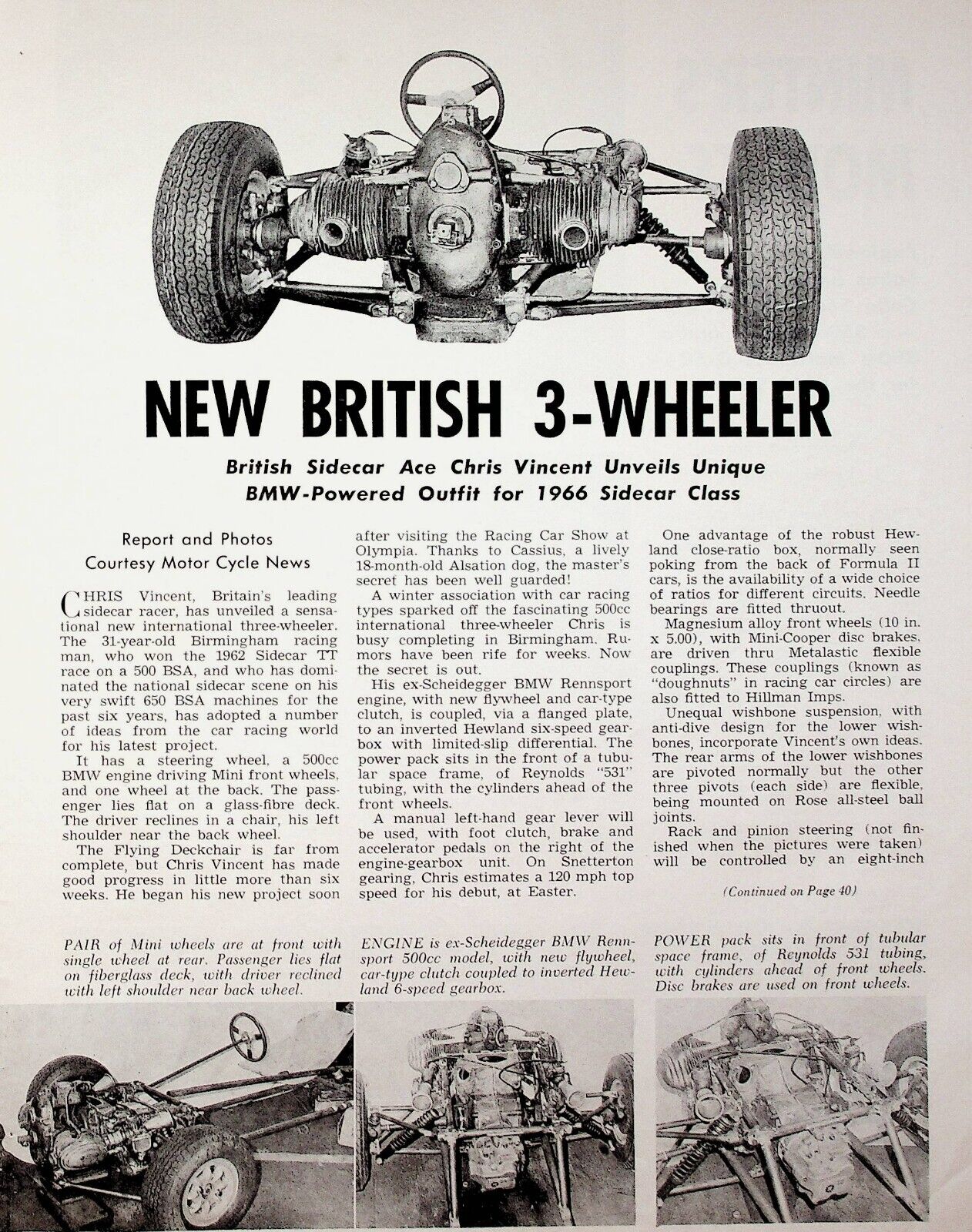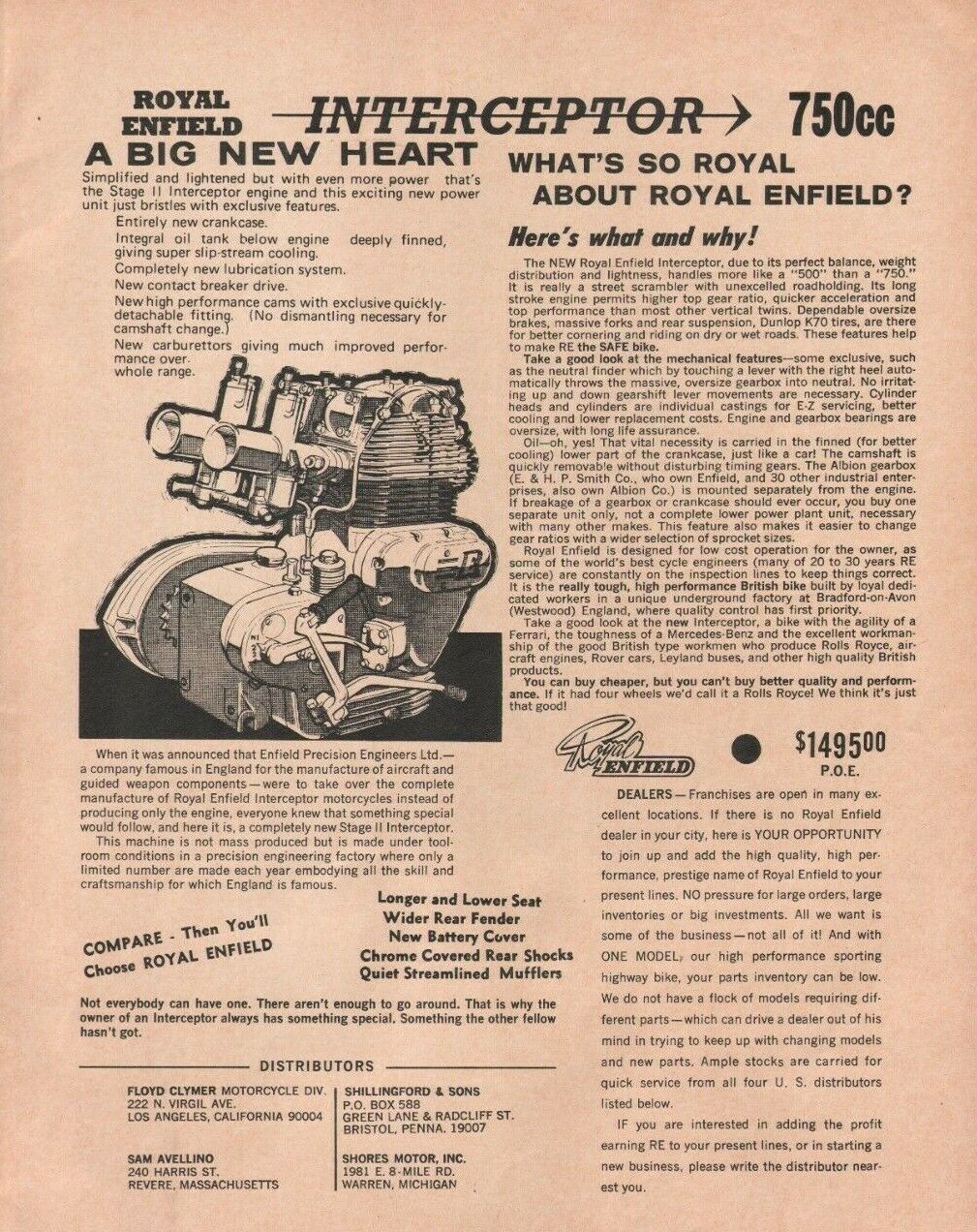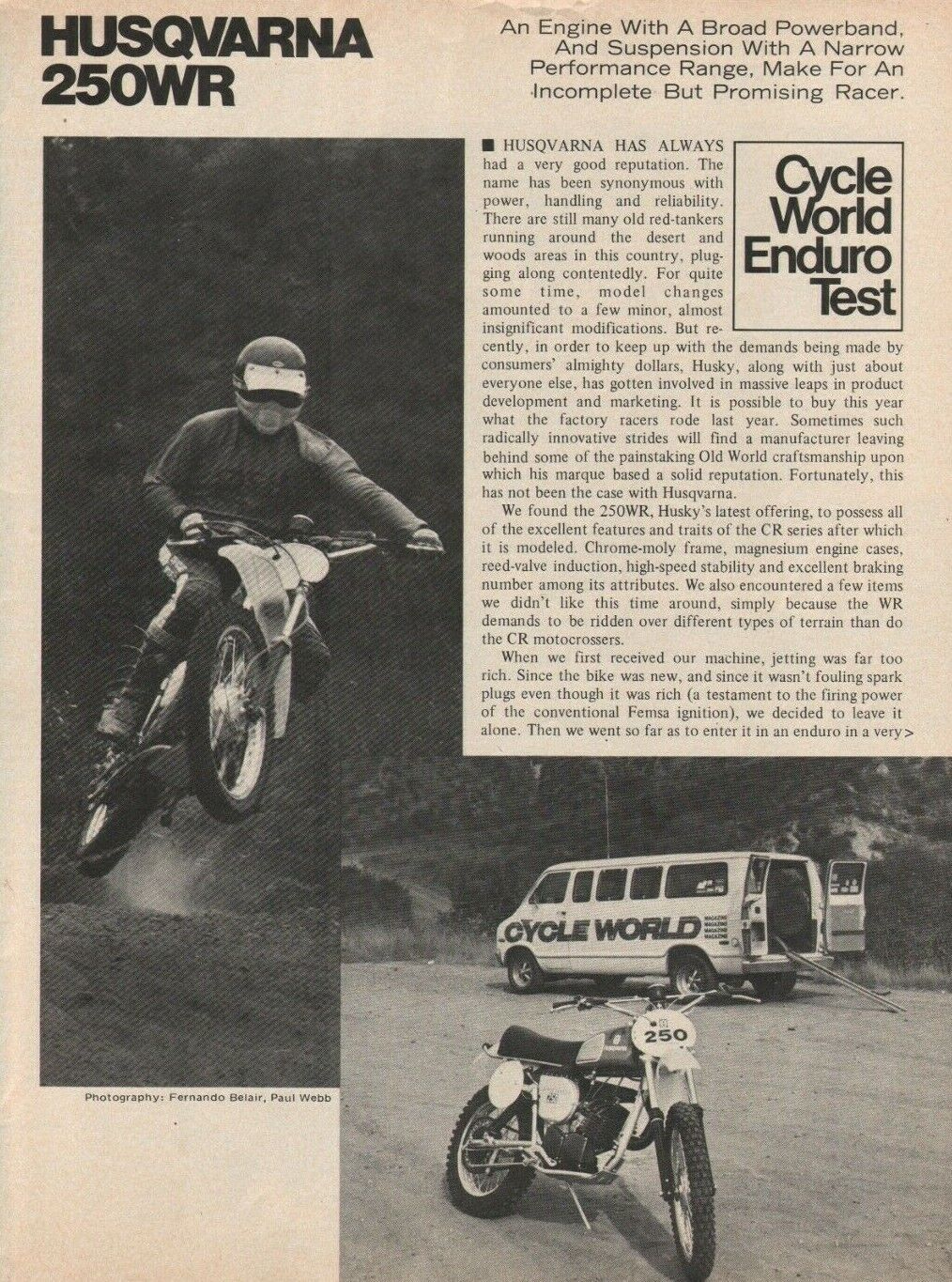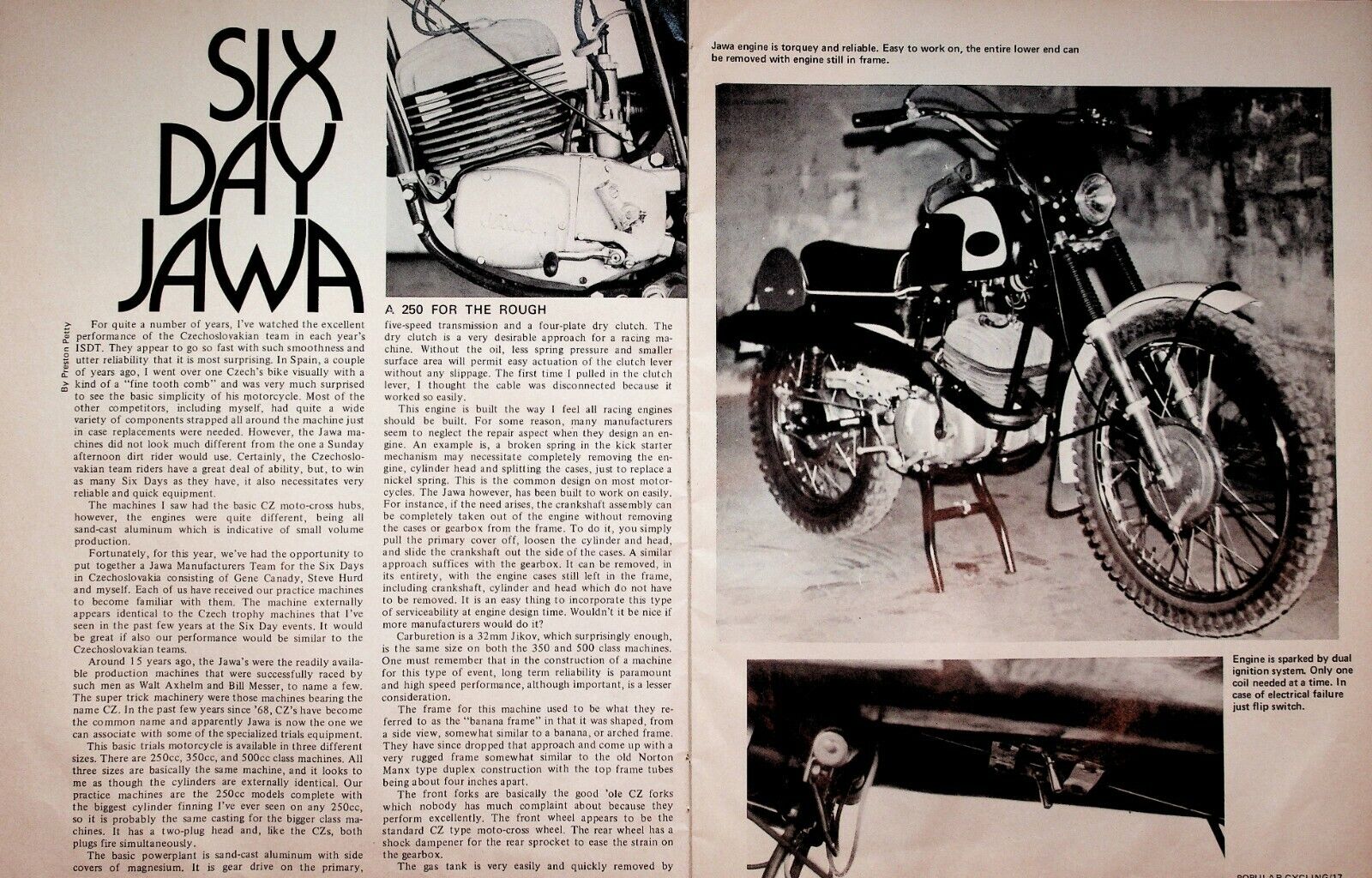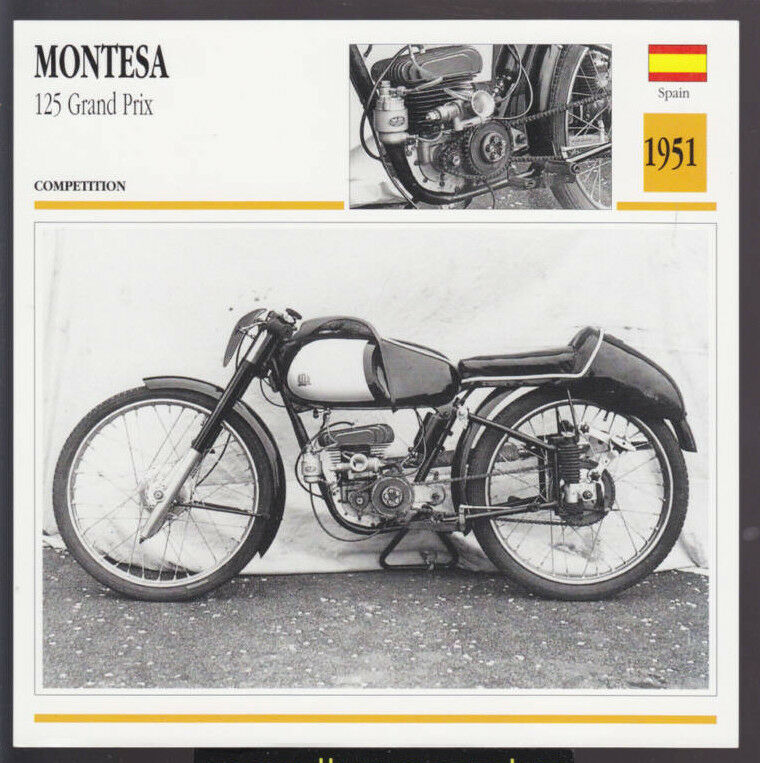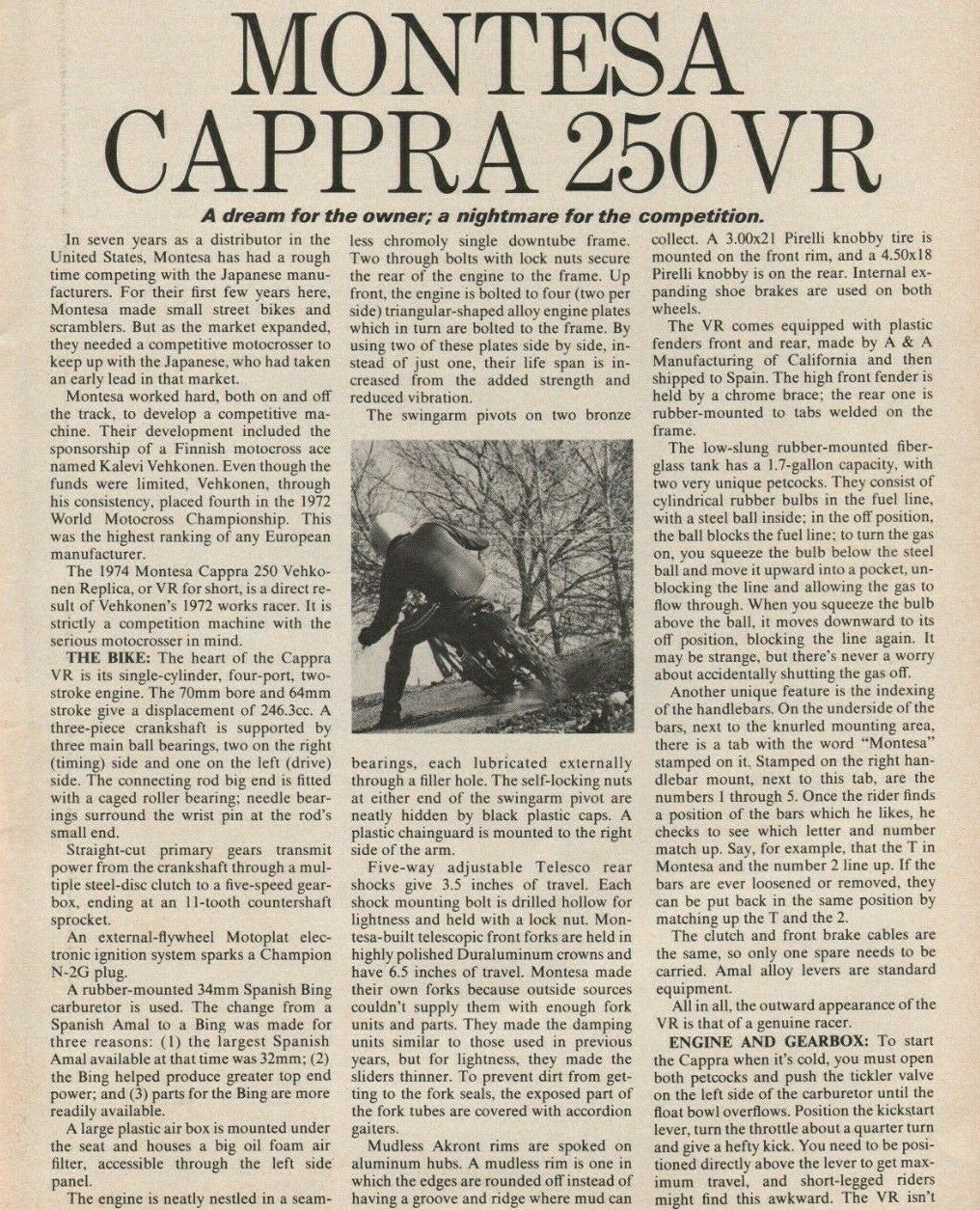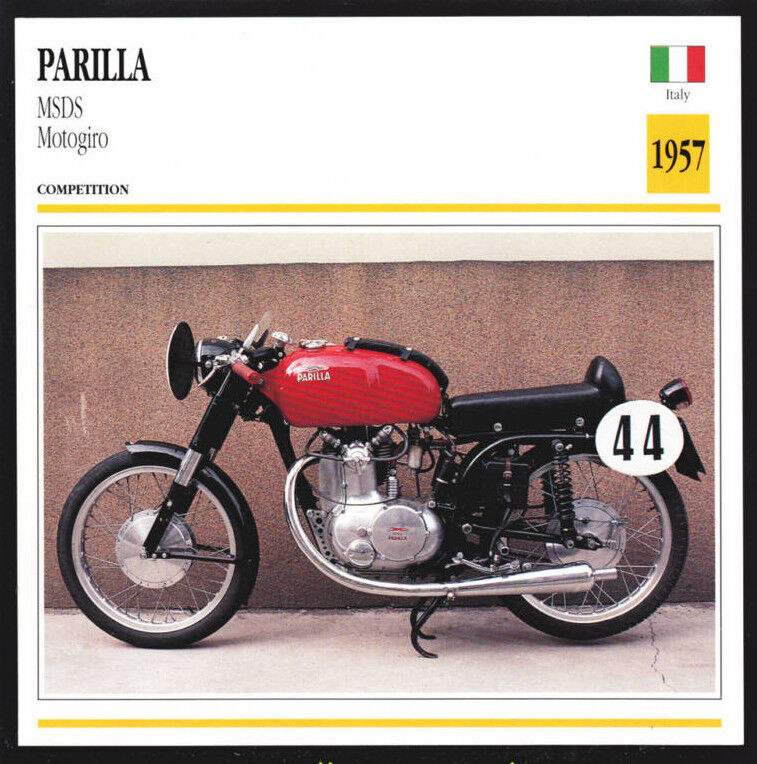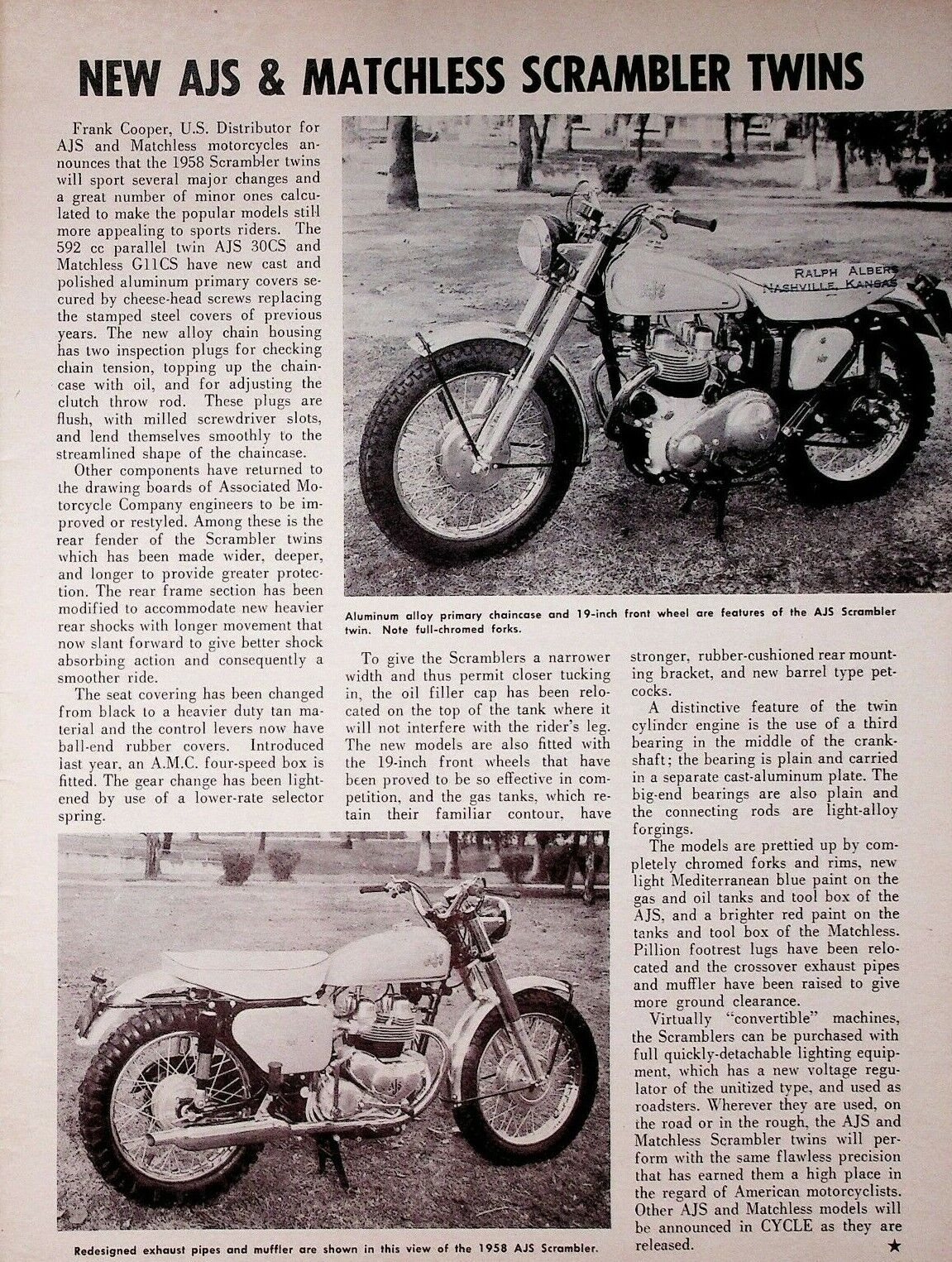-40%
1966 British 3-Wheeler Chris Vincent Sidecar - 2-Page Vintage Motorcycle Article
$ 6.73
- Description
- Size Guide
Description
1966 British 3-Wheeler Chris Vincent Sidecar - 2-Page Vintage Motorcycle ArticleOriginal, vintage magazine article.
Page Size: Approx. 8" x 11" (21 cm x 28 cm) each page
Condition: Good
NEW BRITISH 3-WHEELER
British Sidecar Ace Chris Vincent Unveils Unique
BMW-Powered Outfit for 1966 Sidecar Class
Report and Photos
Courtesy Motor Cycle News
HRIS Vincent, Britain’s leading
sidecar racer, has unveiled a sensa-
tional new international three-wheeler.
The 31-year-old Birmingham racing
man, who won the 1962 Sidecar TT
race on a 500 BSA, and who has domi-
nated the national sidecar scene on his
very swift 650 BSA machines for the
past six years, has adopted a number
of ideas from the car racing world
for his latest project.
It has a steering wheel, a 500cc
BMW engine driving Mini front wheels,
and one wheel at the back. The pass-
enger lies flat on a glass-fibre deck.
The driver reclines in a chair, his left
shoulder near the back wheel.
The Flying Deckchair is far from
complete, but Chris Vincent has made
good progress in little more than six
weeks. He began his new project soon
after visiting the Racing Car Show at
Olympia. Thanks to Cassius, a lively
18-month-old Alsation dog, the master’s
secret has been well guarded!
A winter association with car racing
types sparked off the fascinating 500cc
international three-wheeler Chris is
busy completing in Birmingham. Ru-
mors have been rife for weeks. Now
the secret is out.
His ex-Scheidegger BMW Rennsport
engine, with new flywheel and car-type
clutch, is coupled, via a flanged plate,
to an inverted Hewland six-speed gear-
box with limited-slip differential. The
power pack sits in the front of a tubu-
lar space frame, of Reynolds “531"
tubing, with the cylinders ahead of the
front wheels.
A manual left-hand gear lever will
be used, with foot clutch, brake and
accelerator pedals on the right of the
engine-gearbox unit. On Snetterton
gearing. Chris estimates a 120 mph top
speed for his debut, at Easter.
One advantage of the robust Hew-
land close-ratio box, normally seen
poking from the back of Formula II
cars, is the availability of a wide choice
of ratios for different circuits. Needle
bearings are fitted thruout.
Magnesium alloy front wheels (10 in.
x 5.00), with Mini-Cooper disc brakes,
are driven thru Metalastic flexible
couplings. These couplings (known as
“doughnuts” in racing car circles) are
also fitted to Hillman Imps.
Unequal wishbone suspension, with
anti-dive design for the lower wish-
bones, incorporate Vincent’s own ideas.
The rear arms of the lower wishbones
are pivoted normally but the other
three pivots (each side) are flexible,
being mounted on Rose all-steel ball
joints.
Rack and pinion steering (not fin-
ished when the pictures were taken)
will be controlled by an eight-inch
(Continued on Page 40)
PAIR of Mini wheels are at front with
single wheel at rear. Passenger lies flat
on fiberglass deck, with driver reclined
with left shoulder near back wheel.
ENGINE is ex-Scheidegger BMW Renn-
sport 500cc model, with new flywheel,
car-type clutch coupled to inverted Hew-
land 6-speed gearbox.
POWER pack sits in front of tubular
space frame, of Reynolds 531 tubing,
with cylinders ahead of front wheels.
Disc brakes are used on front wheels.
15486
